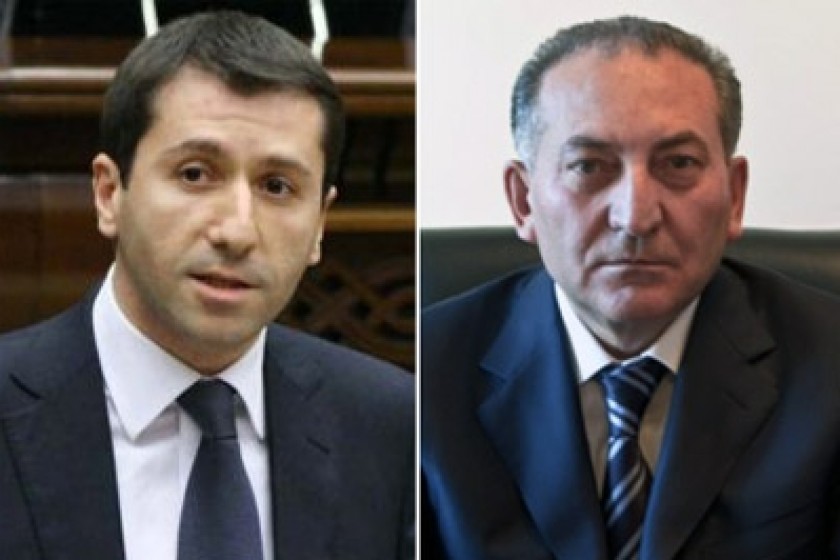
RA Human Rights Defender Assesses 2011 Activities of Special Investigation Service
In certain cases investigators of the Srevice didn’t follow the reasonable timeframes for conducting preliminary investigation and they were unduly delayed. In addition, the latter in such cases did not violate the timeframes prescribed by the RA Criminal Procedural Code for preliminary investigation of criminal cases, and in all cases they have been extended in prescribed timeframes and order.
The abovementioned assessment has been accepted by the head of the Service in some sense- in the course of summarizing the work done during 2011 particularly noting that the Service should demonstrate special consistency towards preparation of materials and maintenance of prescribed by law timeframes for preliminary investigation of criminal cases.
Criticism towards the Service work went on in the respect of efficiency of preliminary investigation conducted with respect to facts of deaths of 10 people on 1st March, 2008. Relatives of the deceased persons are convinced that the Service has not conducted its functions with sufficient effectiveness. Thomas Hummerberg in his 2011 report expressed his concerns on the matter as well, pointing out the importance of the issue as from the point of view of human rights protection, as well as in terms of increasing public confidence. A favorable fact is that the Service has published thorough information on the work done referring to investigation of the mentioned cases, neverthless- the relatives of the victims as well as the society expect complete disclosure of the cases.
Investigation of cases- subject to the Service investigation by law, was carried out by other bodies. The RA Criminal Procedural Code clearly points out all the cases, when investigation is subject to the jurisdiction of the Service, but this requirement of the law has been ignored sometimes. For instance, due to data, presented by the Service, a single criminal case has been investigated in the service relating to a criminal case conducted with the participation of a RA MoD officer. This itself evidences about a law violation, as the society is informed about various crimes conducted with the participation of the RA MoD officers, which were investigated in the RA MoD Investigation Service. Such kind of cases also exist in the Police system. Violation of legislative requirements on subordination led to the violation of general conditions of preliminary investigation, as a result of which the objectivity of the preliminary investigation was doubted.
Public officials working in the Service system haven’t take sufficient measures to exclude corruption risks and violations of restrictions on a special investigation servant- prescribed by Article 11 of the RA Law “About Special Investigation Service”. Highlighting maintenance by officials, working in the Service system, of restrictions on a special investigation servant prescribed by Article 11 of the RA Law “About Special Investigation Service”, the Ombudsman had applied to the Service with a written inquiry to reveal what information on the issue the body had and what kind of measures were being taken for exclusion of corruption risks. In response, the Service informed that the employees got acquainted with restrictions for a special investigation servant prescribed by Article 11 of the RA Law “About Special Investigation Service”, and were warned tofollow the presented requirements.
According to data provided by the Service- 7 criminal cases of ill-treatment (violence) were investigated by officials, 2 of which has been sent to court with an accusatory conclusion, 2 were discontinued for lack of offense, 1 was discontinued for reconciliation of parties and 2 remained unfinished. The presented data evidence that not all the citizens, subjected to ill-treatment (violence) by the officilas, reported the cases to the Service, which evidences that realisation of appropriate functions by the officilas of the Service is highly disproportionate to the actual number of cases of torture, and that results from the insufficient confidence towards the Service by society and unsatisfactory awareness raising campains about its functions.
A favorable fact is that 193 criminal cases were investigated in the Service proceedings during the year, 69 of which were sent to the court with an accusatory conclusion. By the cases sent to court mainly Police, PI, National Security Service, State Revenue Commitee officers were charged. For taking measures towards elimination of circumstances promoting to crimes investigated in the Service proceedings, 14 petitions have been represented by the order of Article 200 of the RA Criminal Procedural Code, which were discussed in prescribed timeframes, and the investigation body has been informed about the measures taken.
Karen Andreasyan,
Human Rights Defender of the Republic of Armenia
The list of the identified positive developments, gaps and shortcomings is not exhaustive.
The HRD Annual Report 2011 was developed based on the complaints received by the Staff of the Human Rights Defender, legislation analysis, trustworthy and non-disclaimed publications in press, reports of the international and local organizations as well as information received during the interviews with field specialists and human rights defenders.
 Videos
Videos Photos
Photos
Write a comment